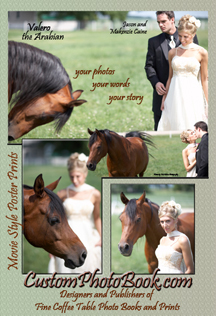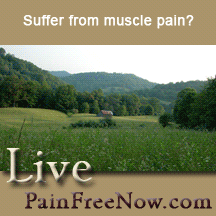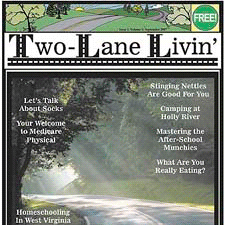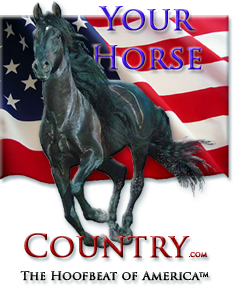| Sponsors:




|
Two Lane Livin' Your Horse
Country Column archives...
September
2010 - Pumpkin
and your horse, Mother Nature’s way of keeping parasites at bay!
Written by Dawna B. Smith,
Journalist and Reporter, writer of the monthly "Your Horse Country" column for
Two Lane Livin' Magazine
September
is when Mother Nature tosses her colors like fruit loops across the hills.
Soon, brilliant sumac reds, golden poplar, and orange maple leaves the
color of pumpkins will capture our senses as we leave the humid summer
behind, relishing the crisp autumn air. Yes, soon there will be PUMPKINS
again! Hurray!
It
wasn’t until last year when there was a severe phytophthora blight on
pumpkin fields that we felt the blight’s effect and could not find
canned pumpkin. Thank goodness we could still find pumpkin seed, one of
the most nutritious anthelmintic
seed you can find. Anthelmintic
or vermifuge is an agent that destroys or causes the expulsion of
parasitic intestinal worms.
Pumpkin
and other species of the Cucurbita family posses an unusual amino acid
known as cucurbitin, the main chemical which is capable of eliminating parasitic
worms. So, what’s
in a pumpkin seed besides cucurbitin? There’s lots of protein, good fat
(oleic acid and linoleic acid), carbohydrate, fiber, ash, calcium,
phosphorus, iron, thiamine, riboflavin, niacin, essential mineral
potassium, Zinc, the vitamin pantothenic acid, the essential mineral
magnesium, and the important vitamins A, B, C and E.
Pumpkin
is truly a SUPER FOOD for humans and horses, and has large amounts of
bio-available carotenoids, which has been shown to help reduce the risk of
being affected by various types of cancers, helps remove large quantities
of uric acid in the urine, and helps soothe and cleanse the digestive
system. Carotenoids derived from foods such as the pumpkin, are excellent
defenses against the risk of diseases and can help fight off all kinds of
disorders in our horses and ourselves, including arthritis and
cardiovascular.
I
like what Dan Moore, DVM, The Natural Horse Vet at http://www.naturalhorsenetwork.com/worming.html,
has to say about horse de-worming.
“…way
back before easy to use, convenient paste wormers were available, at the
most, we dewormed twice a year. I also remembered that most veterinarians
did a fecal check exam on horses each time before we treated them. If they
didn’t have a positive test, we simply did not deworm! Exceptions were
only the obvious need, like a “wormy” looking horse. Bottom line is
many horses didn’t have worms then and many horses don’t now,
either!”
“Horses
that tend to have worms simply do – horse that don’t tend to have
worms, simply don’t. Just like people – some people get sick all the
time, some hardly ever, regardless of the exposure. If horses do have
parasites, studies have shown that actually about two out of three horses
will become reinfected in eight to ten weeks after deworming. When
reinfected, those that initially had high numbers of eggs will continue to
have high numbers. Those that had low numbers to begin with had low
numbers later, too! So the parasites can be reduced with chemicals BUT
they obviously just come back in “parasite prone” horses anyway. Could
this be more of a genetic-type resistance in the horse rather than
effectiveness of dewormers? In my opinion, the more you give chemicals the
weaker the horse becomes, with a consequent tendency for many more
problems.”
Great words of wisdom from an equine
vet. So, if you’re concerned about the long term effects of frequent
chemical worming, you might consider the health and cost benefits of using
raw food grade pumpkin seed on a regular basis….for both YOU and YOUR
horse!
Bio:
Dawna Smith,
Journalist and Reporter, writes the monthly column "Your Horse
Country" for Two Lane
Livin' Magazine, based in West Virginia, as well as numerous articles regarding pain related medical issues for
LivePainFreeNow.com. A photographer and free lance writer, her op-ed articles have been published regarding a variety of subjects.
She and her husband have been strong advocates for the elderly and disabled since 1998,
and formed the non-profit HEADINGS (helping elderly and disabled in need gain support) to help ensure that legislature, Department of Health and Human Resources, and the Centers for Medicare and Medicaid heard their voices.
She can be reached at dawna @ yourhorsecountry.com
304-765-0490.
|




